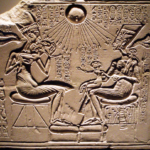“A good act does not wash out the bad, nor a bad act the good.
Each should have its own reward.”
― George R.R. Martin, A Clash of Kings
Introduction
We are all afraid to die. At least most of us are. I believe that the fear of death arises out of the mystery of what lies beyond death’s iron curtain. Would death end everything? Or is there an existence beyond death? Such questions have troubled the minds of thinking souls from the day man started searching for the meaning of his earthly existence. And a multitude of spiritual and materialistic philosophies emerged to explain life, death and everything between and beyond.
Some of these philosophies proposed the concept of heaven, hell and a final day of judgement with a divine saviour offering heaven as a reward for faith in him. Some others suggested the doctrine of Karma to say that man’s destiny is determined by his own actions. Some schools of thought suggested that all Karmic sins could be atoned by appeasing certain deities through devotion, rituals and sacrifices. Others chose to keep the divine out of the Karmic theory. Still others propagated that religion is the opium of the masses.
What then is the truth? From time immemorial, man has been trying to find an answer to this question. However, the one truth that philosophies refuse to admit is that none really knows what lies in store for the dead. As long as the dead do not return to reveal to the living about it, the whole afterlife explanations would stay in the realm of either pure speculation or blind faith.
My attempt here is to present the basic concepts of two predominant afterlife theories viz. the salvation theology of Christianity and the doctrine of Karma advocated by religions like Hinduism, Buddhism and Jainism that evolved in the Indian subcontinent.
The Salvation Theology of Christianity
Let us take a brief look at the Christian theology. The Bible says in the Book of Genesis that almighty God created the universe and everything in it in six days. On the seventh day God rested. God moulded the first man Adam out of the dust of the earth on the sixth day of his creation activities. Then from one of his rib bones, God fashioned a female. She was named Eve. God gave her to Adam as his life mate. (There is another version in the book Genesis saying that God just ordered the creation of humans in his image as male and female). God put Adam and Eve in the magnificent garden at Eden.
Adam and Eve were sinless to start with. But one day Satan (Devil) lured them into disobeying the command of God. Adam and Eve became sinners. God drove them out of the Garden of Eden. Sin entered the world. The first couple passed it on to their children and those children to the generations that came after. Thereby, entire human race came to be infected with sin.
According to the Christian faith, God is infinite and holy. God represents all that is good and virtuous. Satan is finite and malevolent. Satan stands for everything evil. Heaven is the seat of God – a majestic and happy place somewhere up above the clouds. Hell is the abode of the Devil. It is a realm of pain and horror somewhere down below. The sinful humans remain under the bondage of Satan.
Now where did Satan come from? Since God is the creator of everything, Satan too was created by God. About Satan the Bible says, “You were perfect in your ways from the day you were created, till iniquity was found in you” (Ezekiel 28:15). But sometime down the line, Satan turned vile. A perpetual clash between good and evil commenced. And Satan succeeded in enslaving the humans under the burden of sin.
The salvation theology of Christianity says that man on his own cannot free himself from the clutches of the villainous Satan. So, in order to fulfill the law and redeem the human race from Satan’s bondage, God sent His ‘only begotten son’ Jesus into earth as a sacrificial lamb. Jesus went around Galilee preaching the Gospel of love, charity and forgiveness. He questioned the ruthless enforcement of the Jewish scriptural law in a purely literal manner on the hapless poor. He sought to free the ordinary Jews moaning under the heavy burden of the Law.
The Jewish leadership could not allow it. They accused Jesus of blasphemy. Had Palestine not been under Roman occupation, the Jewish theological authorities could have themselves ordered the death of Jesus. But under the Roman rule, death penalty needed the approval of the Roman representative. The Roman governor Pontius Pilate acceded to the demand of the Jewish leaders and ordered the crucifixion of Jesus (a Roman form of punishment). Jesus died on the cross.
The Gospels say that on the third day of his burial, Jesus came out alive from his tomb, appeared to several of his disciples and went back to Heaven to be with the Father. Christians believe that the death and resurrection of Jesus occurred in fulfillment of the divine plan to save the sinners. And deliverance from the stranglehold of sin was made possible through faith in Jesus as the son of God and sole redeemer.
The faithful believes that Jesus would return to earth one day in the future. There are many theories with regard to the time of his Second Coming. Whenever it happens, the world would come to its end and all people dead and alive would be gathered together and judged for their deeds. The multitude would be separated into two groups – one to the right hand side and the other to the left hand side of the Judge (Jesus). Jesus would take those on the right to heaven to live with him happily forever and ever. To those on the left hand he would say, “Depart from Me, you cursed, into the everlasting fire prepared for the devil and his angels” (Matthew 25:41). Where they are sent, “their worm dies not, and the fire is not quenched” (Mark 9:44).
Since Satan had a beginning, it too should have an end. Christians expect the final annihilation of Satan as part of the agenda of the Second Coming. The Bible says, “The devil, who deceived them, was cast into the lake of fire and brimstone where the beast and the false prophet are. And they will be tormented day and night forever and ever” (Revelation 20:10). “Then Death and Hades were cast into the lake of fire” (Revelation 20:14). This, in essence, is the ‘official’ Christian theology as far as I understand it.
Criticism of the Salvation Theology
I am a Christian and a student of religious philosophies. I believe that the Gospel preached by Jesus is among the simplest of all religious philosophies. He had preached the Gospel love. Jesus repeatedly exhorted people to love one another, be happy and be in peace with themselves and others. Have no anxieties, he advised. Worrying over anything is futile since man has little control over most things happening in his life. The Gospel in practice should enable people to lead a life of contentment, peace and happiness.
The problem arises when the emphasis gets shifted from the Gospel to the Gospel giver. It is the Christian faith that Salvation comes through faith in Jesus alone. The Bible says, “Salvation is found in no one else, for there is no other name under heaven given to mankind by which we must be saved” (Acts 4:12). This philosophy of either my way to heaven or the highway to hell sounds too arbitrary. Besides, over emphasis on the teacher to the loss of sight of his teachings does not look very rational to me. It leads to the dangerous interpretation that sin cannot affect you as long you can confess it and declare faith in Jesus as the sole redeemer. The question is, would faith itself assure salvation? I am inclined to take the view that faith in a messenger not demonstrated through putting his message into practice in life is nothing but deceitful pretence.
Even within the Bible, the views on the issue are different. Apostle Paul says, “For by grace you have been saved through faith. And this is not your own doing; it is the gift of God…” (Ephesians 2:8). But Apostle James writes, “What good is it, my brothers and sisters, if someone claims to have faith but has no deeds? Can such faith save them? Suppose, a brother or a sister is without clothes and daily food. If one of you says to them, “Go in peace; keep warm and well fed”, but does nothing about their physical needs, what good is it? In the same way, faith by itself, if it is not accompanied by action, is dead… Show me your faith without deeds, and I will show you my faith by my deeds…” (James 2:14-18). Even Jesus said, “Why do you call me ‘Lord, Lord,’ and not do what I tell you?” (Luke 6:46).
There is an unmissable tendency among Christians to condemn everyone outside its fold to damnation. The ground reality is even worse. Each of the thousands of Christian denomination around the world condemns other Christians so. Such predilections of ‘holier than thou’ are rooted in the fundamentalist notion of each Christian denomination that it alone has all answers to all the questions on the human situation.
Finally, what happens to the huge majority that have neither known nor accepted Jesus as their ‘Lord and Saviour’? What would be the fate of destitute children who become sinners after being snapped up into child pornography and teenage prostitution? What about people who learn nothing and own nothing but are destined to sustain their lives by eating from garbage cans and sleeping on the sidewalks? What would be the destiny of people living in perpetual struggle in an unjust and cruel world who would consider it their good fortune to die? Where would such people go? Would a just and loving God of the Bible sent such people to Hell to suffer forever for their unremitted sins? Perhaps, He would not.
The Doctrine of Karma
The religious philosophies that emerged in the Indian subcontinent brought forth a theology that focussed on the individual and his actions. According to this philosophy, the nature of each individual is demonstrated by his actions. And actions would fashion man’s destiny, be it in this life or in the afterlife. This is the essence of the doctrine of Karma.
Karma is simply action. Every animate organism has an innate propensity to move. Such movements are physical as well as mental. In fact, no physical movement occur without a mental trigger – conscious or subconscious. This motion is action. When these actions are repeated, it becomes a habit. Eventually habits accumulate to build the person’s character. This is the process of Karma.
Simply stated, the doctrine of Karma is, “Do good and good will come to you, now and hereafter. Do bad and bad will come to you now and hereafter”. In the language of the farmer, Karma is explained as, “If you sow good seeds, you will reap good harvest. If you sow bad seeds, you will reap bad harvest”. In the language of science, Karma is the law of cause and effect. In other words, it is the law of moral causation. Moral causation works in the moral realm just as the law of action and reaction (Newton’s third law) operates in the physical realm.
Thus, the doctrine of Karma sets its primary focus on the individual and not on any god in heaven or salvation through faith in some saviour. Some of these religions like Buddhism and Jainism do not refer to the idea of devotion to any god. These religions are atheistic in its essential nature. For these religions, Karma is the theology of individual human being building his or her own destiny.
This doctrine was apparently proposed first by Vedic Hinduism, which was further developed in the Upanishads. The doctrine of Karma carried by the Upanishads believes in reincarnations. Many schools of Hinduism believe that God is also involved in the operation of Karma in some ways. Thus, individual could seek the intervention of God through prayers, rituals and sacrifices. But when it was further developed by Buddhism and Jainism, god was kept out of the operation of the Law of Karma. According to Buddhism, Karma is an impersonal natural law in itself, without a lawgiver.
The theories of salvation propounded by Indian religions say that present life is conditioned by accumulated actions of past lives. It follows that the deeds of the present life would determine the future births and life situations. It directs humans toward the ultimate goal of release from the cycle of birth and death (Moksha). Thus, the moral philosophy of Karma provides man the motivation to lead an ethical life. It also tries to explain the existence of evil in this world without bringing a devil into the equation.
In the Abrahamic religions, the divine judge apparently maintains a record of the faith and works of the individual. But under the doctrine of Karma, the state of the soul reveals the life of the person. Only the body dies; the soul does not. The various Indian moral philosophies provide different explanations on how the soul is affected by the consequences of Karma. But all these philosophies acknowledge the productions of some kind of Karmic particles by every thought and action. For instance, Jainism suggests Karmic particles settling on the soul (Jiva) of individuals when they engage in immoral thoughts or actions. With more and more Karmic dust settling in the soul, the soul becomes heavy and impure. The levels of impurities in the soul determine further rebirths. According to Buddhism, the Karmic residue produces dispositional tendencies (Samskaras) and psychological traces (Vasanas). These determine the individual’s future births and personality traits.
Criticism of the Doctrine of Karma
According to the Law of Karma, every good deed produces its own reward and every evil deed its own punishment. But common human experience reveals that a good man often suffers in spite of his goodness and an evil man prospers and enjoys life in spite of his evil. The doctrine of Karma tries to explain it by suggesting an appropriate future life for the souls concerned as humans or animals to correct this apparent injustice.
But the dogma of reincarnation creates its own problems. For instance, take the case of a child who is born with serious physical or mental problems who would live on the bed for a short while and would then die. Does such a thing happen to punish the parents for their past Karma? And what is achieved through the futile life and suffering of the hapless child? The whole doctrine makes people just pawns in the hands of a blind and insensitive moral law.
Another difficulty with the doctrine of Karma and reincarnations is that the person who suffers because of his past Karma does not have any memory of either his past lives or the history of his actions in those lives. So the person simply cannot connect his current state with his past states or the states to which he would be catapulted beyond his current life. As stated, “Reincarnation fails of its very object if we have not the slightest recollection of any event, however important, in any past life.”
A major objection to the doctrines of Karma and reincarnation is that it leads to fatalism. For instance, we can suggest that a man who commits a murder or rape was destined to do so because of the evil nature he has come to acquire through his past Karma. Now can an earthly judicial system punish a man who simply cannot help acting in accordance with the influences of his past Karma? A punishment in such a case would be adding insult to injury. Such fatalism leads to pessimism, which is the greatest enemy of the innate human desire to build a better world.
The doctrine of Karma is prone to be misused to divide the society. This happens in India. For instance, it is easy to argue that a person comes to be born in a lower caste or upper caste depending up on his past Karma. This was used to justify the caste system that separated people into watertight compartments. A person born into a lower caste has no chance to escape his miserable state in the present life. It is easy to avoid or even prevent any attempt to uplift the lower caste people or to mitigate the sufferings of others caught in the vortex of their circumstances since it would be interpreted as an attempt to sabotage the universal moral law.
There are also other objections to the theory of Karma. The series of births and deaths running into eternity turns into a dreadful nightmare. Since hardly anyone can live sinless in this life, suffering becomes the default state of life. To counter this sense of dread, the ancient sages developed the concept of Moksha (emancipation) as part of the doctrine of Karma. Moksha (Mukti) puts an end to the series of deaths and births. But there is nothing definite about how or when it would really be achieved by individuals struggling to survive in a cruel and unjust world.
Conclusion
Many of us might think that the Christian theology of salvation and the doctrine of Karma are two irreconcilable streams of spiritual thoughts with regard to the fate of man. The doctrine of Karma puts its stress on individual actions. I believe that the Christian theology too puts great emphasis on action. In fact Apostle Paul echoes the very same Karmic doctrine when he says, “… for whatever one sows, that will he also reap” (Galatians 6:7). Jesus had said, “Give and it will be given to you. Good measure, pressed down, shaken together, running over, will be put into your lap. For with the measure you use it will be measured back to you” (Luke 6:38). The Gospel also says, “So every good tree bears good fruit, but the bad tree bears bad fruit. A good tree cannot produce bad fruit, nor can a bad tree produce good fruit. Every tree that does not bear good fruit is cut down and thrown into the fire.…” (Mathew 7:17-19). This is essentially the doctrine of Karma.
I would put more emphasis on action rather than on faith. I am also inclined to agree with the view that every action has its consequence. And I believe that there are enough evidences in the Bible to show that the Christian theology is not against these propositions of the doctrine of Karma. (It would need an exclusive post to discuss it).
I have difficulties with the endless reincarnations of the soul as humans or animals proposed by the doctrine of Karma. I think every human being carries within himself various shades of human and animal natures. We can find it within ourselves if we dispassionately examine how our own character changes from time to time. We would find it in others if we look close enough. Thus, reincarnations of the soul apparently keep occurring even as we go through with our present life on earth.
I also have problems with the idea of a heaven beyond the clouds and a hell somewhere underneath. I would rather like to understand these ideas as more allegorical than literal. God lives in a pure heart. When it is corrupted with sin, God moves out and Satan comes in. Heaven is the place where God is present. Devil resides in hell. Jesus said,”… behold, the kingdom of God is within you” (Luke 17:21 (KJV)). I prefer to believe that heaven and hell are within us although we often fail to be conscious of it.
Finally, irrespective of the shades of faith, spirituality is a flourishing business today. So, whatever I have suggested here might not agree with the official versions of the institutionalized religions concerned. Let us remember that corporatized faiths simply would not survive as a money spinning industry without all its holy men, saints, pilgrim centres and the glam and glitter of its power and paraphernalia. When salvation is on sale, the gullible are just pawns in the hands fraudsters and fake gurus.
Let me conclude with the words of Albert Schweitzer, the German theologian who said, “The God who is known through philosophy and the God whom I experience as Ethical Will do not coincide. They are one; but how they are one I do not understand” (Christianity and the Religions of the World).













Well attempted. Theory of karma, reincarnation etc. and also the theology of Satan, Second Coming etc. are full of holes. I think you have finally nailed the issue with the Albert Schweitzer quote. Unfortunately you have left out the most acceptable philosophy on the subject which can be found in the Bhagavatham. This great work is supposed to be originally an oral rendition recited by Suka Brahmarshi to remove the fear of death from King Pareekshith. He died at the appointed time but without any fear of death. Budhism too has an entirely different view. Budha did not believe in the existence of soul and was also sceptical about the popular notion of god. According to him to if the God is Omniscient and Omnipotent then human beings with their limited wisdom can never understand that phenomenon. According to him everything for a person ends with his death.
@Mathew George
Thank you for your valuable observations Sir. I am pleasantly surprised about your interest and insights on the topic. Most people are comfortable articulating what they are supposed to believe and not what they actually believe or find difficult to believe. Any reasonable individual would see the ‘holes’ in the whole salvation theology. In fact my first draft had quoted the following passage from Nietzsche, which I edited out in the final version to obviate the misunderstanding that I am a Nihilist. “A god who begets children with a mortal woman; a sage who bids men work no more, have no more courts, but look for the signs of impending end of the world; a justice that accepts the innocent as a vicarious sacrifice; someone who orders his disciples to drink his blood; prayers for miraculous interventions; sins perpetrated against god, atoned for by a god; fear of a beyond to which death is the portal….how ghoulishly all this touches us…” (Human, All Too Human). Of course, I cannot accept it when Nietzsche says that God is dead. Anything that would die is certainly not God. And as you rightly mentioned, man is too insignificant a being to understand the phenomenon. Kind Regards. gkutty.
After Cow the salvation… Seperated by astronomical miles but undoubtedly both lucidly written. The ultimate goal of all religions is to attain salvation the means may differ. While the Abrahamic religions require the soul to wait till the dooms day to know its fate the Hindu religions speak of the attainment of moksha/nirvana/kaivelya even during the lifetime of one. The difference may be due to the fact that Abrahamic religions sought to unite and preach the majorly nomadic tribes and propogate their thoughts through the tools of holy crusade or jihad, so that the soul was asked to do its deeds and wait for the resurrection. In hindu theology there always existed a concept of seemless movement of saintly souls between earth and heaven, though hell was reserved only for those dead! The means to attainment deferred from philosophy to philosphy. Karma, advaita,nirvana,miksha,gyaan,yoga are few among many. But gyaan is prominent in the sense that all attach a significant role to it in getting to that Brahma of which the origin is traced. So while karma does say so you reap what you sow, it also talks of yonis each jeev will have to take and how finally they come to become manushya etc. Equally true that some kids remain too little to perform their karma but that theory is also well explained in Mahabharata in the drowning of her kids by Ganga, the mother of Bhishma.
Kind regards.
@Anonymous Thank you for sharing your enlightening views on the topic. I wonder how many readers might have misunderstood motives on some of my writings. I write what I believe. Ans I simply cannot be otherwise. But as Gandhiji wrote, the more we learn and understand, we may change some of the earlier views in the light of better knowledge and understanding. There is nothing final since we continue to seek, find and still seek. That is why knowledge or wisdom becomes so critical in religious philosophies in general and in Indian philosophies in particular. The problem comes when our minds become closed. This is were religious fundamentalism takes birth. I believe that being open is being tolerant. Thanks and Regards. kutty